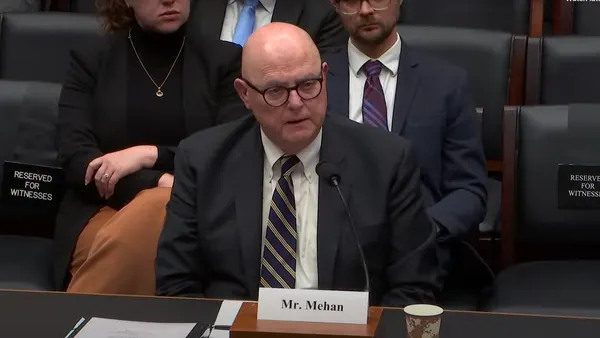Dive Brief:
- Early on the morning of Aug. 21 a Crown Container truck crashed into 13 parked cars in New York after the driver possibly fell asleep, as first reported by The Yeshiva World News. No injuries occurred and the NYPD didn't make any arrests or issue any summonses, as reported by DNA Info.
- Kendall Christiansen, executive director of New Yorkers for Responsible Waste Management (NYRWM) provided the following statement on behalf of Crown Container. "We are very sorry for the damage that was done by our truck, and are thankful no one was hurt. We are reaching out to the automobile owners to pay for their damages. We are conducting a thorough investigation of this incident. The driver has been suspended until the investigation is complete. We are taking steps to prevent this type of incident from occurring again."
- Full details about what caused the incident remain unclear and the driver reportedly had no prior record of safety issues. The truck did have an onboard video recorder from which footage is being recovered.
Dive Insight:
Video captured by what appears to be a security camera shows the truck drifting to the right around 6 a.m., hitting a parked car and continuing forward in a chain reaction. This caught the attention of local publications in the Brooklyn neighborhood where it occurred and quickly got linked to the city's broader commercial waste safety conversation.
Employees in New York's commercial waste industry have been known to work long shifts, often with a densely packed route schedule, but details about how many hours this particular employee was working have not been disclosed. These types of safety concerns have been receiving additional attention as part of a push by the city to change how the local industry is organized, a topic which has also sparked debate between labor groups.
"Is anyone asking how many hours private sanitation workers are being made to work each week? How many stops they are being given each night?" Sean Campbell, president of Teamsters Local 813, wrote to Waste Dive. "Many companies ignore federal limits on how many hours their workers can drive in one shift, or in one week."
Outside of the private sector, the city's Department of Sanitation also reported more than 2,600 collisions during the 2016 fiscal year, showing that this isn't unique to the private industry and comparisons are difficult to make because similar data isn't publicized.
Another local safety symposium, co-hosted by city agencies and industry groups, has been scheduled for October. Bike safety is expected to be a primary topic due in part to recent fatalities involving collection trucks. If fatigue is found to be the cause of this latest incident, that could also be highlighted. The recent withdrawal of a federal sleep apnea rule, and a new study from Lytx linking football season to drowsiness among collection truck drivers, are the latest examples of fatigue receiving attention in the ongoing safety discussion.









